New Plants Worth a Second Look…
Do you ever get tired of seeing the same plants showing up in landscapes time after time?
It doesn’t matter whether you live in the desert or in more temperate climates – there are always 5 – 10 varieties of plants that are used over and over.
Even though these plants may be attractive, the fact that they are seen everywhere makes the landscapes they are in somewhat unremarkable and therefore ‘forgettable’.
As a horticulturist, I am always on the lookout for different plants to use in landscapes. Last week, I visited the Desert Botanical Garden’s Plant Sale, which is a great place to go to see the newest plant introductions along with lesser-known plants that grow in our desert climate.
In an earlier post, I shared about new plant colors available for well-known plants. Today, I thought that I would share with you some lesser-known plants that you may want to try out in your garden.

I love the name of this small, flowering shrub – ‘Lipstick’. While the flowers closely resemble those of Autumn Sage (Salvia greggii), they are from a different plant (Salvia microphylla ‘Lipstick’).
Both plants are closely related and their requirements are the same. So you would use the same way as you would Autumn Sage. Hardy to zone 8 – 11, ‘Lipstick’ does best with afternoon or filtered shade in desert gardens. I like to plant them around the base of Palo Verde trees. Flowers will appear fall, winter and spring.

This is ground cover with large Australian-shaped plant tags is a new introduction that is very exciting.
Called ‘Outback Sunrise Emu’ (Eremophila glabra mingenew gold ‘Outback Sunrise’) is a great addition to the desert garden palette.

My first opportunity to see this plant was during a visit to the master-planned community of Verrado, where it is planted throughout the medians.

In spring, yellow flowers appear covering this evergreen ground cover. A single plant grows 1 foot high and 6 – 10 feet wide.
‘Outback Sunrise Emu’ thrives in full sun or filtered shade, is hardy to zone 8 – 11 and is drought-tolerant. It may be a little hard to find in nurseries right now, but it is well worth the effort.

For those of us who love agaves, then I have a new one for you to try. Agave ‘Blue Glow’ is a hybrid of two different agaves (A. attenuata and A. ocahui).
Like its name suggests, the leaves seem to ‘glow’. My mother has one that she purchased years ago at the Huntington Botanical Gardens in Pasadena, CA. It moved with her from California to Arizona where it does very well.
‘Blue Glow’ is a smaller agave that grows 1 – 2 feet high and 2 – 3 feet wide. It does require filtered or afternoon shade in desert gardens.

This gray shrub was definitely the most unique plant that I encountered at the plant sale.
Pearl Bluebush (Maireana sedifolia) is another great import from Australia. The leaves are succulent and I couldn’t help but keep touching them.
This drought-tolerant shrub thrives in full sun, is hardy to zone 9 – 11 and will grow 3 – 5 feet tall and wide.
I would plant it near dark-green ground covers where the gray color will provide great contrast.

Blue Bells (Eremophila hygrophana) is rapidly on its way to becoming one of my top 5 shrubs.
It closely resembles the gray-colored sages of (Leucophyllum). While they do share many similar characteristics – blue/purple flowers, drought-tolerance and the ability to thrive in full, desert sun – there are some differences.
Blue Bells are hardy to zone 8 – 11 and stay rather compact at 3 ft. tall and wide and rarely need pruning. In addition, it flowers all year long.
I recently included these shrubs in a re-design of a church landscape and am very happy with how they look.

I am always attracted to salvias of all kinds, so I found myself paying particular attention to all of the different species available.
The dark pink flowers of Chiapis Sage (Salvia chiapensis) caught my eye and I was sorely tempted to buy one.
This salvia grows to 2 ft. tall and 3 ft. wide. Hardy to zone 8, the flowers attract butterflies and hummingbirds.
Chiapis Sage does best in filtered shade and fertile soil. Because I don’t have any room in my areas with filtered shade, I didn’t buy this salvia.

I was intrigued by this shrub, which is a relative of Baja Fairy Duster (Calliandra californica), which I do like to use in landscapes.
This is Red Powder Puff (Calliandra haematocephala).

I had not heard of this shrub before, so I was immediately curious. It looks like the flowers resemble those of its cousins Baja & Pink Fairy Duster. But, its leaves are much larger.
Hardy to zones 8 – 11, it will grow large – 4 – 10 feet tall and wide. Filtered shade would probably be best if growing this shrub in a desert garden.
*******************
I hope you have enjoyed some of these new plants that are definitely worth a second look.
Next time, I’ll share with a few helpful tips when shopping for plants along with the 3 plants that I bought from the plant sale.

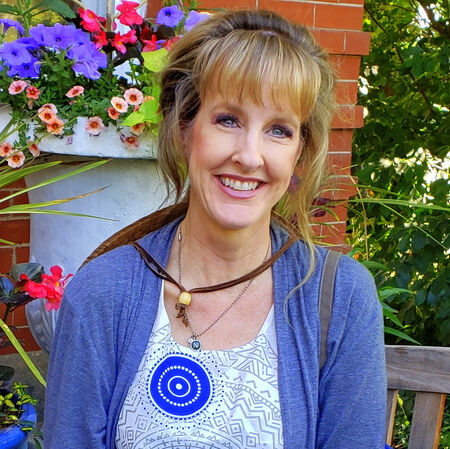 Noelle Johnson, aka, 'AZ Plant Lady' is a author, horticulturist, and landscape consultant who helps people learn how to create, grow, and maintain beautiful desert gardens that thrive in a hot, dry climate. She does this through her consulting services, her online class Desert Gardening 101, and her monthly membership club, Through the Garden Gate. As she likes to tell desert-dwellers, "Gardening in the desert isn't hard, but it is different."
Noelle Johnson, aka, 'AZ Plant Lady' is a author, horticulturist, and landscape consultant who helps people learn how to create, grow, and maintain beautiful desert gardens that thrive in a hot, dry climate. She does this through her consulting services, her online class Desert Gardening 101, and her monthly membership club, Through the Garden Gate. As she likes to tell desert-dwellers, "Gardening in the desert isn't hard, but it is different."








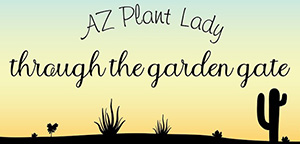

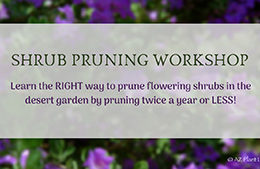
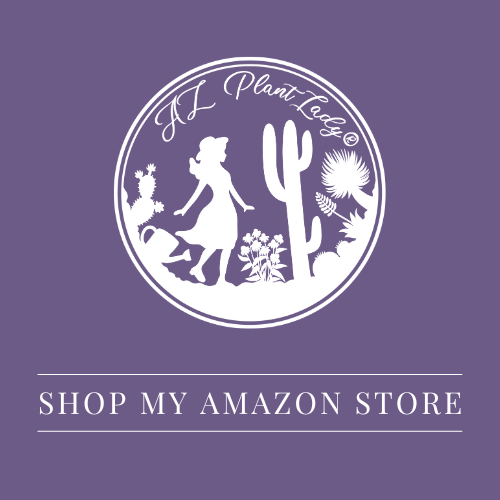
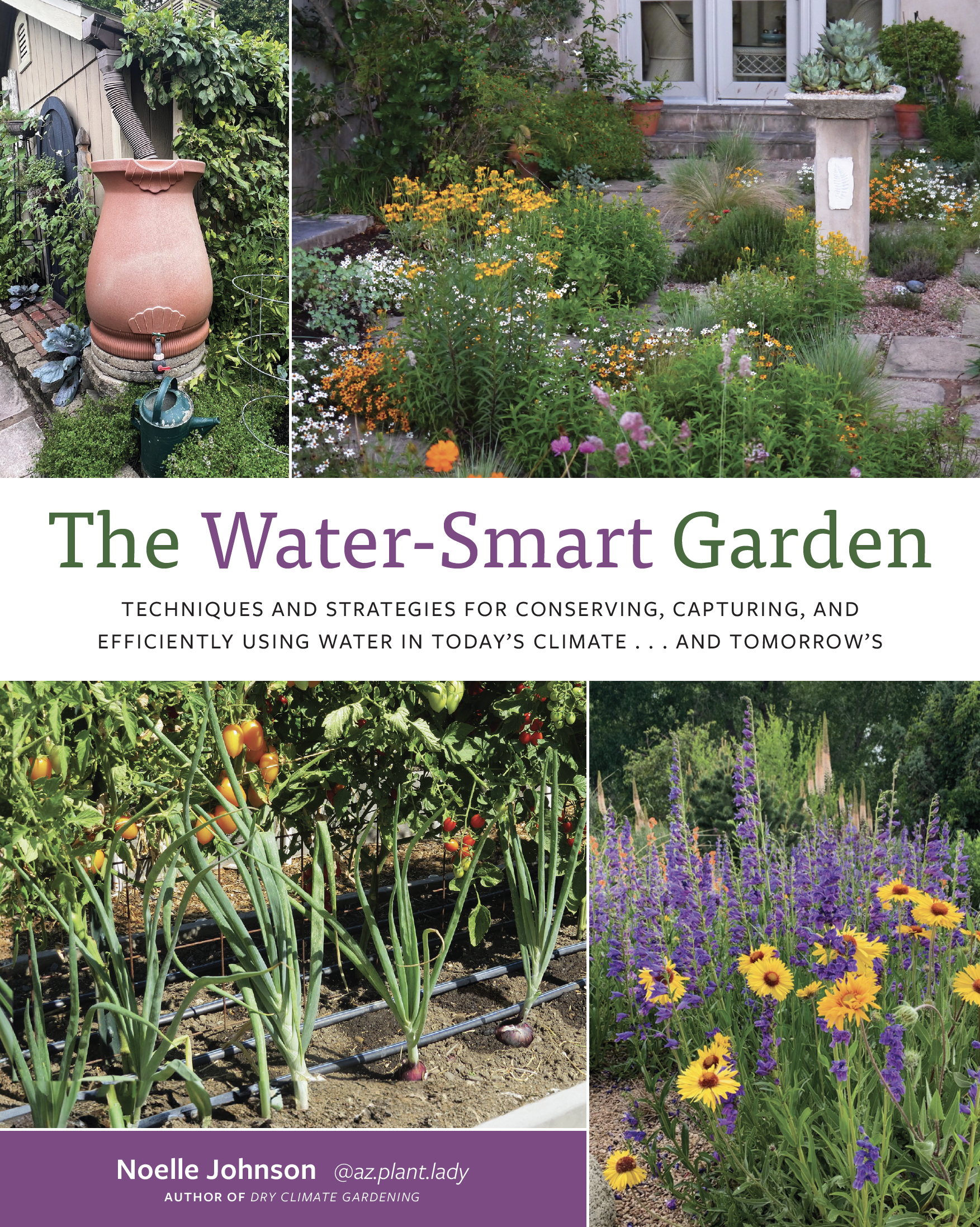
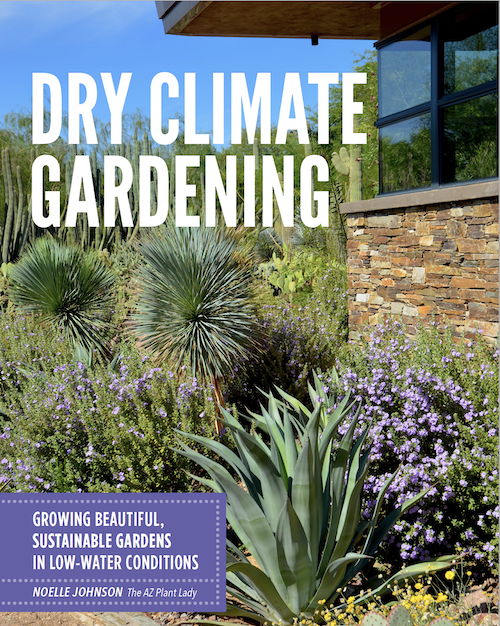


I'd never heard of Maireana sedifolia, I had to google it. Ah, that explains it, it's native to Western Australia. Apparently the soils over there are different and those plants don't always grow well in the east so we don't get them in nurseries here.